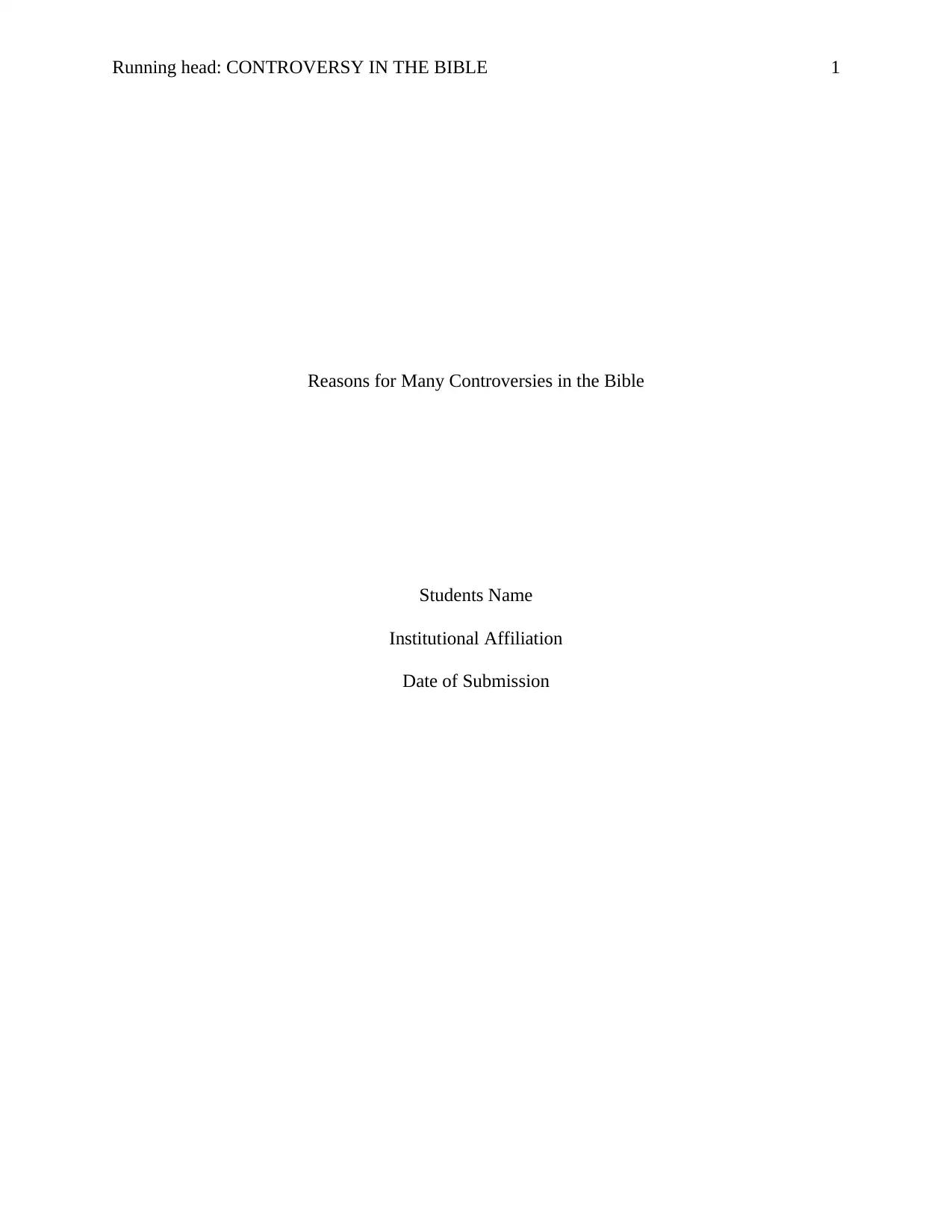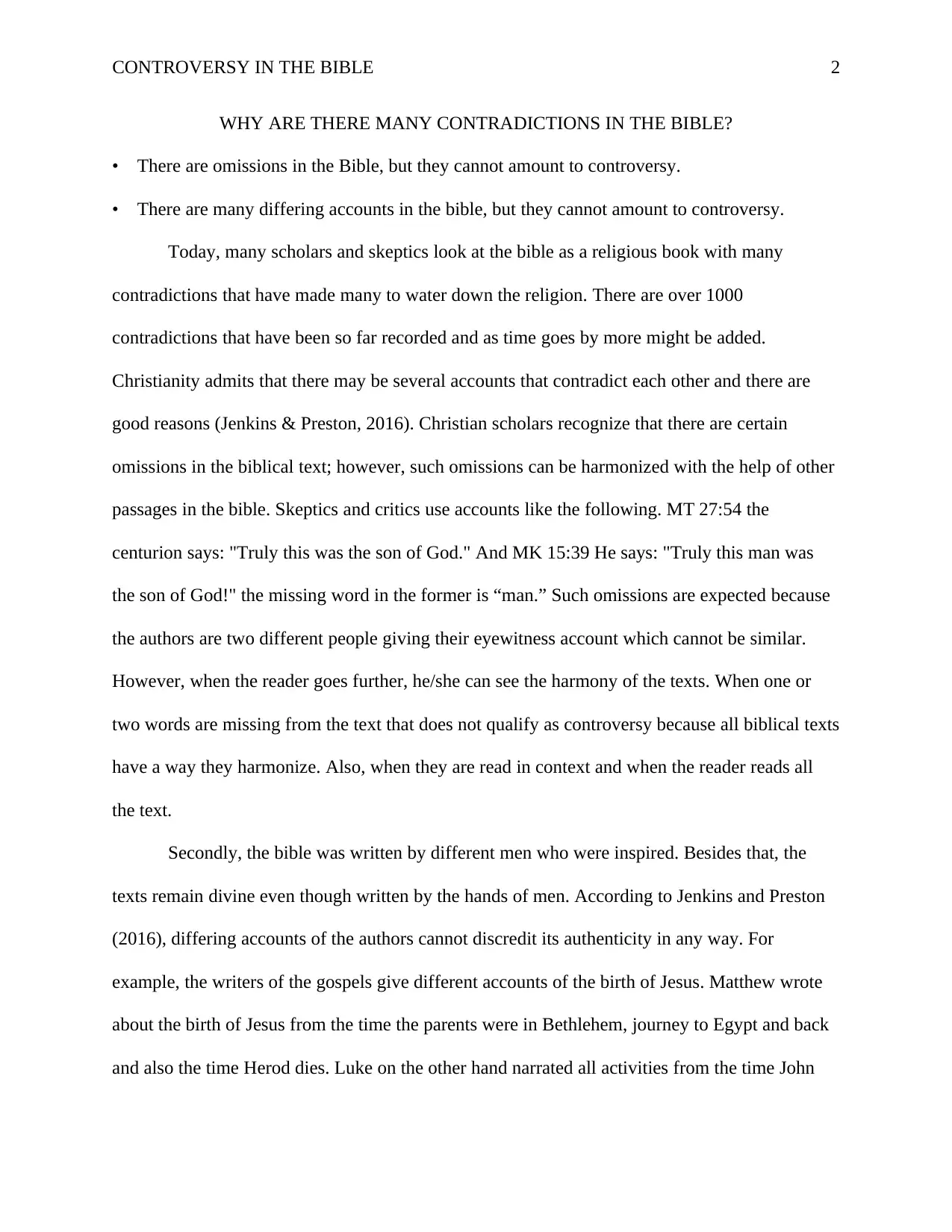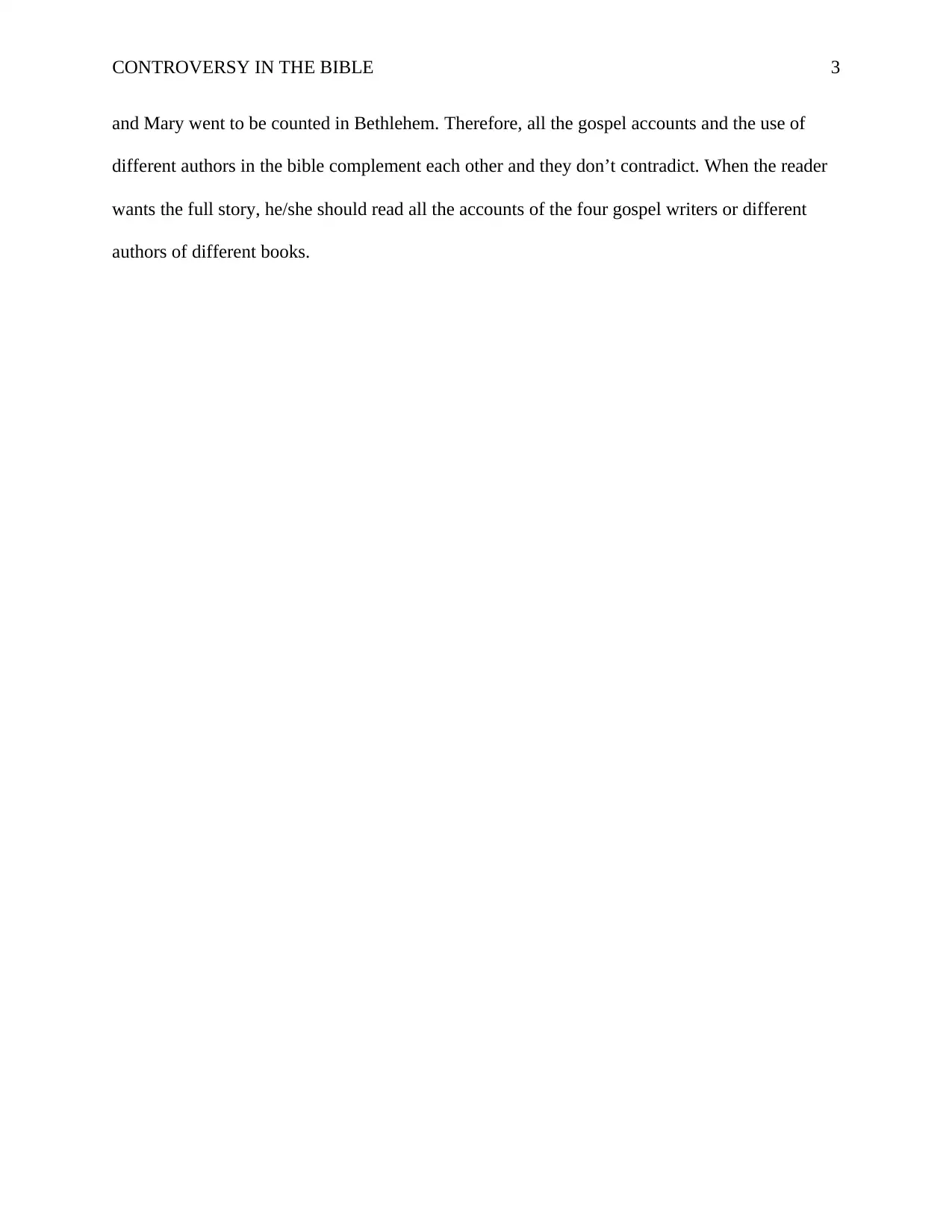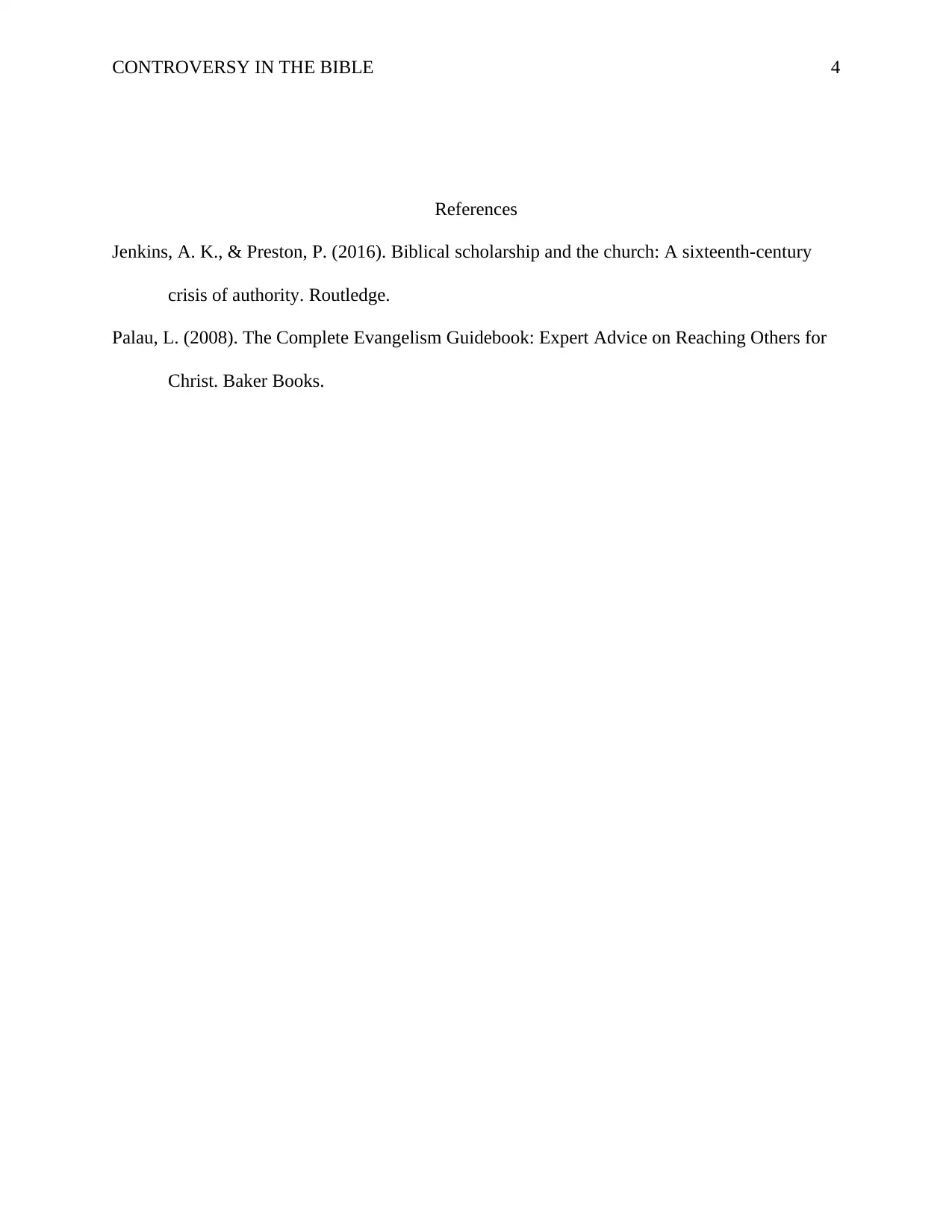Exploring Controversies in the Bible: An Analysis of Contradictions
VerifiedAdded on 2023/06/10
|4
|536
|309
Report
AI Summary
This report delves into the controversies within the Bible, focusing on contradictions and differing accounts among various texts. It addresses the issue of omissions and how they can be interpreted within the broader context of biblical scholarship. The report highlights the perspectives of scholars and the impact of different authors' viewpoints on the overall narrative. It examines the differing accounts of the Gospels and how these variations contribute to a more comprehensive understanding of the scriptures. The report emphasizes the importance of considering the context and the intention of the authors when interpreting the Bible, providing a nuanced perspective on the challenges and complexities inherent in biblical studies. The report also discusses the role of faith and interpretation in understanding these controversies.
1 out of 4





![[object Object]](/_next/static/media/star-bottom.7253800d.svg)